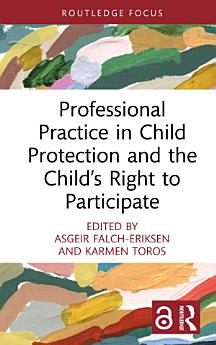Professional Practice in Child Protection and the Child’s Right to Participate
About this ebook
Using the right to expression as stipulated in Article 12.2 of the United Nations Convention on the Rights of the Child (CRC) as a point of departure, it explains what CPS practices should look like and how they must operate to uphold and enforce the rights of the child by providing "the opportunity to be heard" in any administrative practice. Current research literature documents extensively, and across countries, how either the voice of the child is not heard or, alternatively, the existence of a pro forma/tokenistic approach to listening to the child throughout CPS practices. Taking a three-fold approach, this book
- establishes a clearer connection between rights and professional practice according to Article 12
- extrapolates how rights-based practice is achieved during CPS practices
- provides a comprehensive answer to the challenge of implementing Article 12.2 through policy and legislation.
It will be of interest to all students, academic and professionals working within child protection including social workers, probation officers, health and social care workers, lawyers and teachers.
The Open Access version of this book, available at www.taylorfrancis.com, has been made available under a Creative Commons Attribution-Non Commercial-No Derivatives 4.0 license.
About the author
Asgeir Falch-Eriksen is head of the academic unit Globalization and Social Sustainability at the Department of Social Work, Child Welfare and Social Policy at Oslo Metropolitan University. He also holds a position as associate professor at the Centre for Discretion and Paternalism (DIPA) at the University of Bergen. He has a PhD in political science and specializes in political theory, legal philosophy and the sociology of the professions. He has published multiple articles on professionalism in child protection and on the interconnection between child protection and human rights.
Karmen Toros is a professor of Social Work at the School of Governance, Law and Society, Tallinn University. She is actively involved in social work education and training of child protection workers. Her research focuses on child welfare and protection, strengths-perspective and solution-focused approach in child protection practice and is particularly interested in child protection assessment of children in need.





